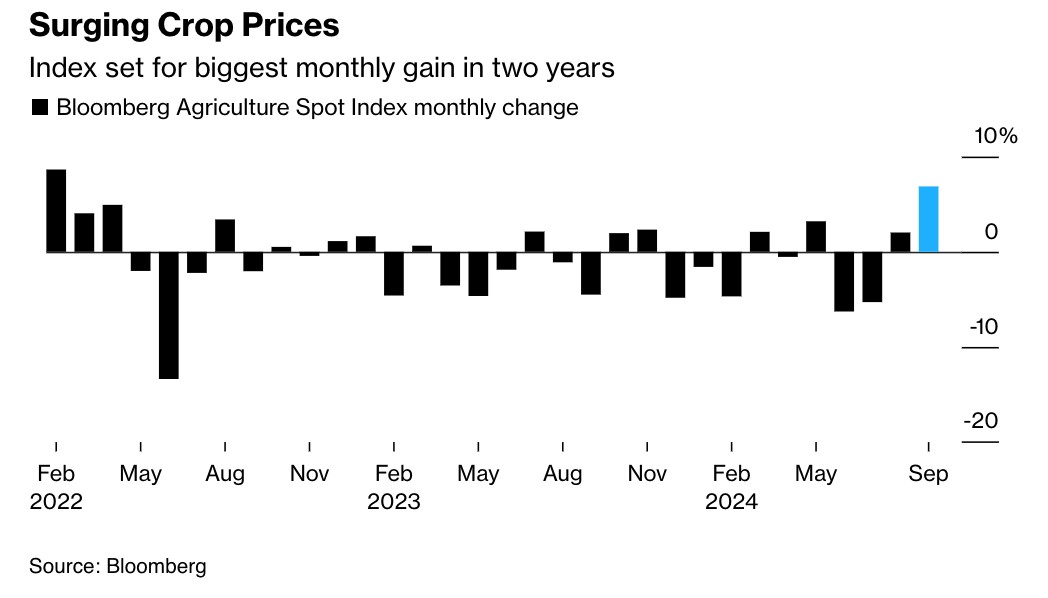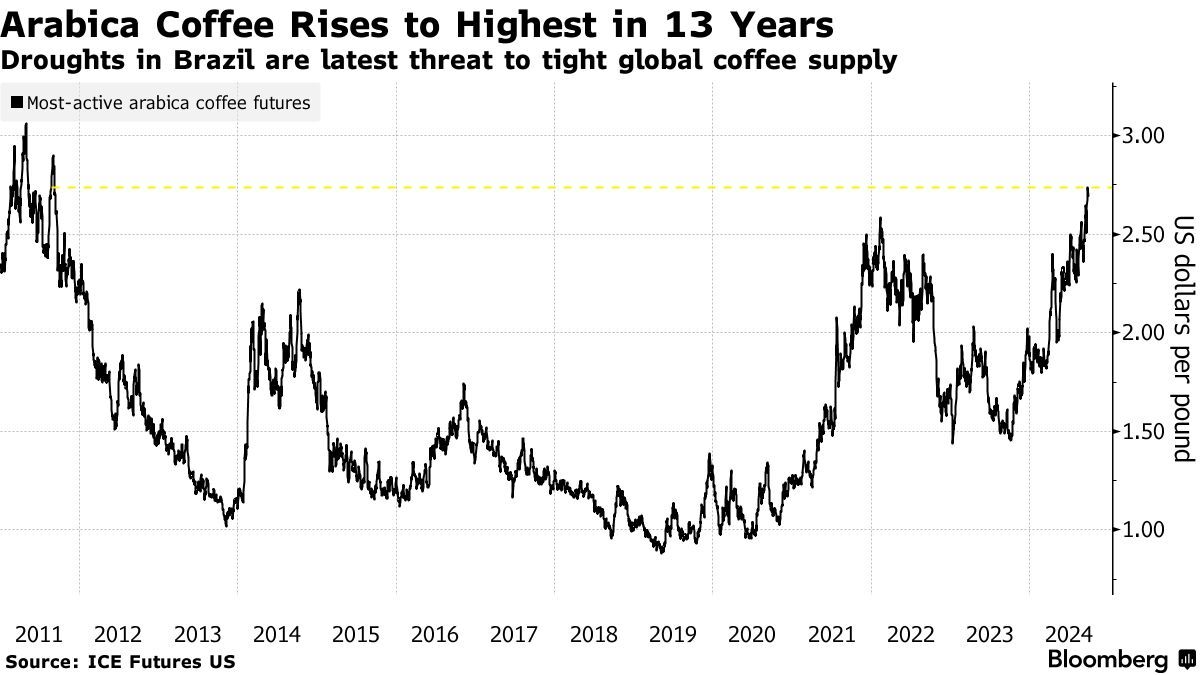"Informed AI News" is an publications aggregation platform, ensuring you only gain the most valuable information, to eliminate information asymmetry and break through the limits of information cocoons. Find out more >>
Extreme weather and geopolitical risks converge, putting upward pressure on global food prices.
- summary
- score


Extreme weather has wreaked havoc globally, from Asia to the Americas, with droughts, heavy rains, and wildfires wreaking havoc on crop yields. Major agricultural commodity prices have surged in response, with the Bloomberg Agriculture Spot Index rising about 7% in September, marking its largest monthly gain since the Russia-Ukraine conflict.
Farmers in Brazil, Vietnam, Australia, and other regions are grappling with floods or droughts, affecting the production of sugar, grains, coffee, and other crops. Michael Whitehead, an agricultural director at ANZ Bank, noted that adverse weather conditions are driving up food prices due to increased supply uncertainties.
Chicago wheat futures have surged, with Australian wheat threatened by drought and frost, and insufficient rainfall in the Black Sea region. Soybean futures have seen their biggest two-year gain, as Brazil faces its worst drought in decades. Sugar futures have risen nearly 17%, and Arabica coffee prices have reached their highest level since 2011.
Droughts and heavy rains in Vietnam have impacted coffee production, while palm oil supplies in Southeast Asia have tightened, pushing futures prices to a five-month high. Hedge funds are betting on rising sugar and cocoa prices. JPMorgan has warned that ongoing droughts in northern and central Brazil pose a continued threat to crop yields.
Traders are monitoring the tense situation in the Middle East and the Black Sea, as well as the impact of the U.S. election on Sino-U.S. trade relations. The market is sensitive to volatility, with weather and political conditions both influencing food prices.
Brief Analysis:
The combination of extreme weather and geopolitical risks poses a severe challenge to the global food supply chain. Rising food prices are putting pressure on consumers, increasing the cost of living. Addressing climate change and stabilizing international relations are key to ensuring global food security.
| Scores | Value | Explanation |
|---|---|---|
| Objectivity | 5 | 内容较为客观,平衡了不同观点。 |
| Social Impact | 5 | 引发广泛社会讨论,显著影响公众意见。 |
| Credibility | 5 | 完全可信,权威来源,证据充分。 |
| Potential | 6 | 极高潜力,几乎必然导致重大变化。 |
| Practicality | 4 | 高度实用,可直接应用于实际问题。 |
| Entertainment Value | 2 | 略显单调,但包含一些娱乐元素。 |